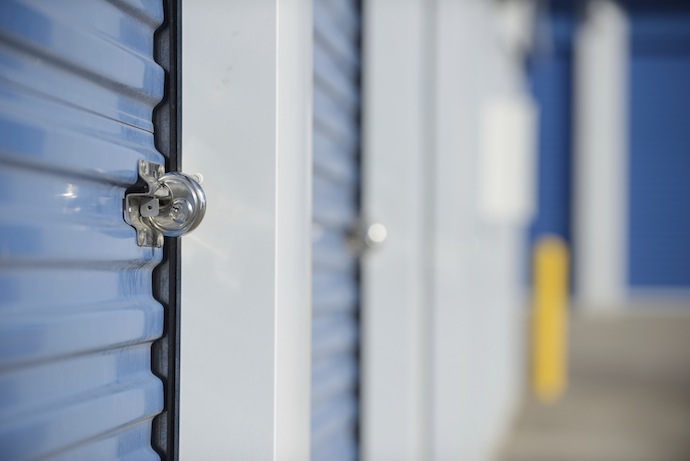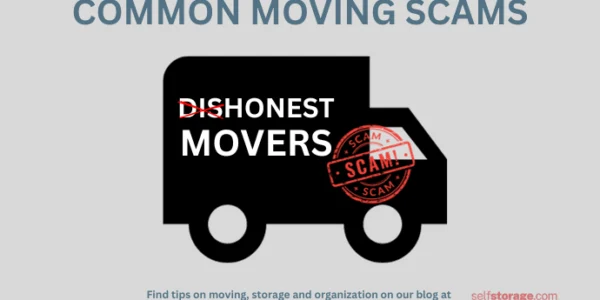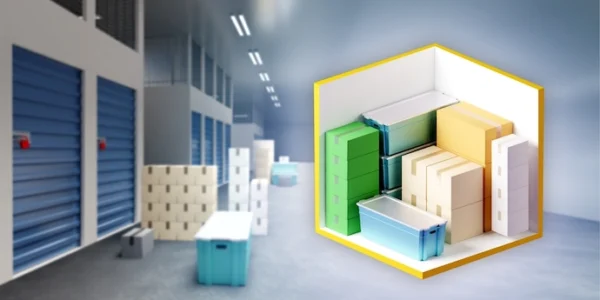A self-storage unit can be a great place to keep your possessions when you leave town for an extended period, but there are steps you should take to make sure the items you store remain safe and secure while you’re away.
Choosing the right storage unit is key to keeping your things in good condition during many months of storage, said Natolie Ochi, a partner at SKS Management, a California company that provides third-party management services for self-storage operators. In regions prone to flooding, she advises long-term tenants avoid ground-floor units whenever possible.
If you’re on the ground floor, you may want to place your things on wooden pallets to keep them several inches off the floor, she said. “This will provide an extra layer of protection.”
Make sure you choose a self-storage facility that is structurally sound. Ask your facility manager how well your unit is protected against water seepage during storms.
“I have seen storage facilities that are not properly moisture-protected,” Ochi said.
Beware of dust
Diane Gibson, who owns Cox Armored Mini Storage Management, runs several facilities in the Phoenix area. She said units that are accessible from the outside, rather than from enclosed hallways, can become quite dusty in dry climates. She doesn’t recommend them for people who are planning to be away for prolonged periods.
If you plan to store things in areas prone to dust storms, Gibson recommends that you cover everything inside the unit with plastic sheets. These can be found at hardware or home improvement stores. Make sure you choose sheets that are thick enough so that they don’t tear easily.
Carlos Martinez, property manager at Value Store It in Miami, recommends using a climate-controlled unit if you’re going to be absent for long periods. Climate control keeps both temperature and humidity at constant levels. In warm, dry climates, wood furniture may crack in units without climate control. Papers, books and artworks may shrink or warp in low-humidity conditions.
You may have to pay more for a climate-controlled unit, but it creates a stable temperature zone “that enables your belongings to be free of cold, heat and moisture,” said Alison Kero, owner of ACK! Organizing in Brooklyn, NY.
Pay your bill on time
Gibson said one of the most important things to do before you leave town is to make sure your storage bill will be paid every month. Otherwise, your possessions could be auctioned to cover your overdue storage tab.
Gibson’s company accepts advance payments of up to one year. You often can pay your storage bill online or to have your credit card billed automatically each month.
It’s important to have a reliable local contact that the storage facility can reach out to in case an emergency happens while you’re away, she said.Make sure that person has a key to the unit so he or she can periodically inspect it for such things as water damage or pests.
If a serious problem develops at the self-storage facility while you’re away, such as lax security or poor maintenance of storage buildings, your contact should have a plan for contacting you and possibly moving your stuff to another facility.
Stack boxes carefully
It sounds elementary, but Martinez said tenants often fail to place the heaviest boxes on the ground when they’re stacking boxes in their units. This can cause the stacks to fall over, breaking fragile items.
Ochi recommends that you avoid using cardboard boxes for storage. In some cases, roaches will eat the glue that’s used to hold cardboard boxes together, she said. Inexpensive plastic storage containers that have covers stack much more easily and do a better job of protecting your belongings from water and insects.
It’s important not to store food or spices, Ochi added. Even foods in jars can attract bugs, creating problems for you and neighboring storage tenants.
“You have to be careful, not just for your stuff, but for the whole facility,” she said.





